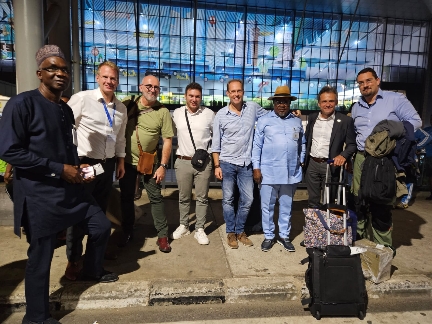The National Palm Produce Association of Nigeria (NPPAN) says its collaboration with the United Nations Industrial Development Office (UNIDO) will attract €300 million investment in the oil palm sector, especially in palm wine production.
The National President of NPPAN, Alphonsus Inyang, communicated this in an interview in Abuja on Friday.
According to him, such investment would focus on palm wine production and packaging for export, palm trunk processing into building materials and furniture, replanting of old plantations and palm oil milling.
The NPPAN boss said that a delegation of investors from Germany, Italy, France, Belgium and Malaysia recently visited Cross River, Akwa Ibom and Lagos States to explore investment in the oil palm sector.
He said the delegation made commitment to invest the said amount in Cross River, Akwa Ibom between 2024 and 2026.
“The commitment is in palm wine production and packaging, utilisation of palm trunk for furniture,replanting of old plantations and installation of mills of up to 30,000 hectares.
“The palm wine business alone is to create over 100,000 new businesses for tappers while the trunk business will create over 200,000 jobs in the two states.”
He said that two processing factories were to engage at no fewer than 100,000 palm wine tappers and train them on the latest technology.
According to him, the tappers will be enabled to tap their wines and sell to them in the factory, process and bottle them for export.
Inyang explained that the investors would use the palm trunk to produce building materials for European and American markets.
He said that most of the buildings and furniture in those climes were constructed or made from the spent palm trunks.
“We have companies who intended buying palm oil mills effluents, the waste and the sludge.
“They want to buy them from any mill and use such to produce industrial products like biogas and export them to Europe and America and even for the local markets,” Inyang said.
He said that the palm trunk would provide jobs and engage over 100,000 people.
Inyang said that the beauty of the collaboration was that Malaysian company would engage in the replanting of the plantations that would be depleted.
Acording to him, the company will replant hybrid seeds that that have the capacity of yielding over 40 tonnes of palm frond bunches per hectare.


